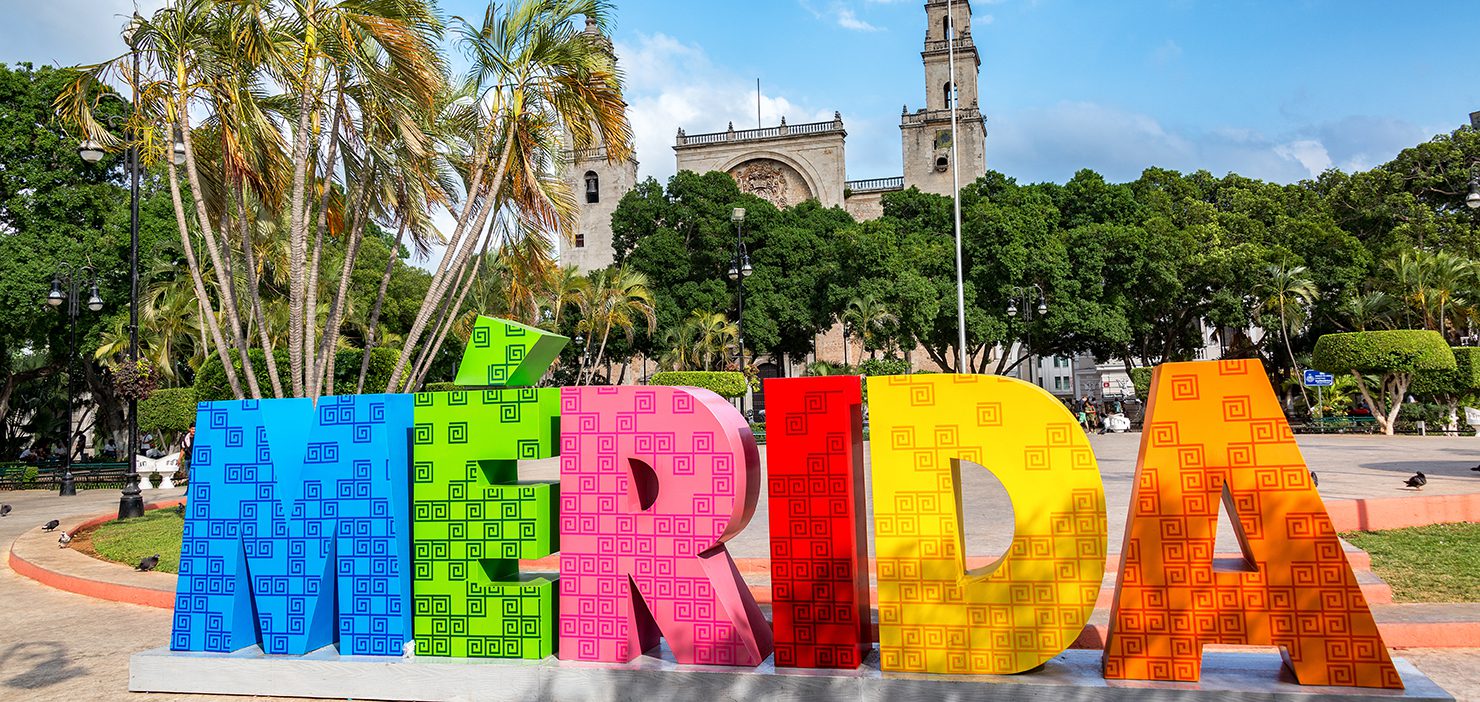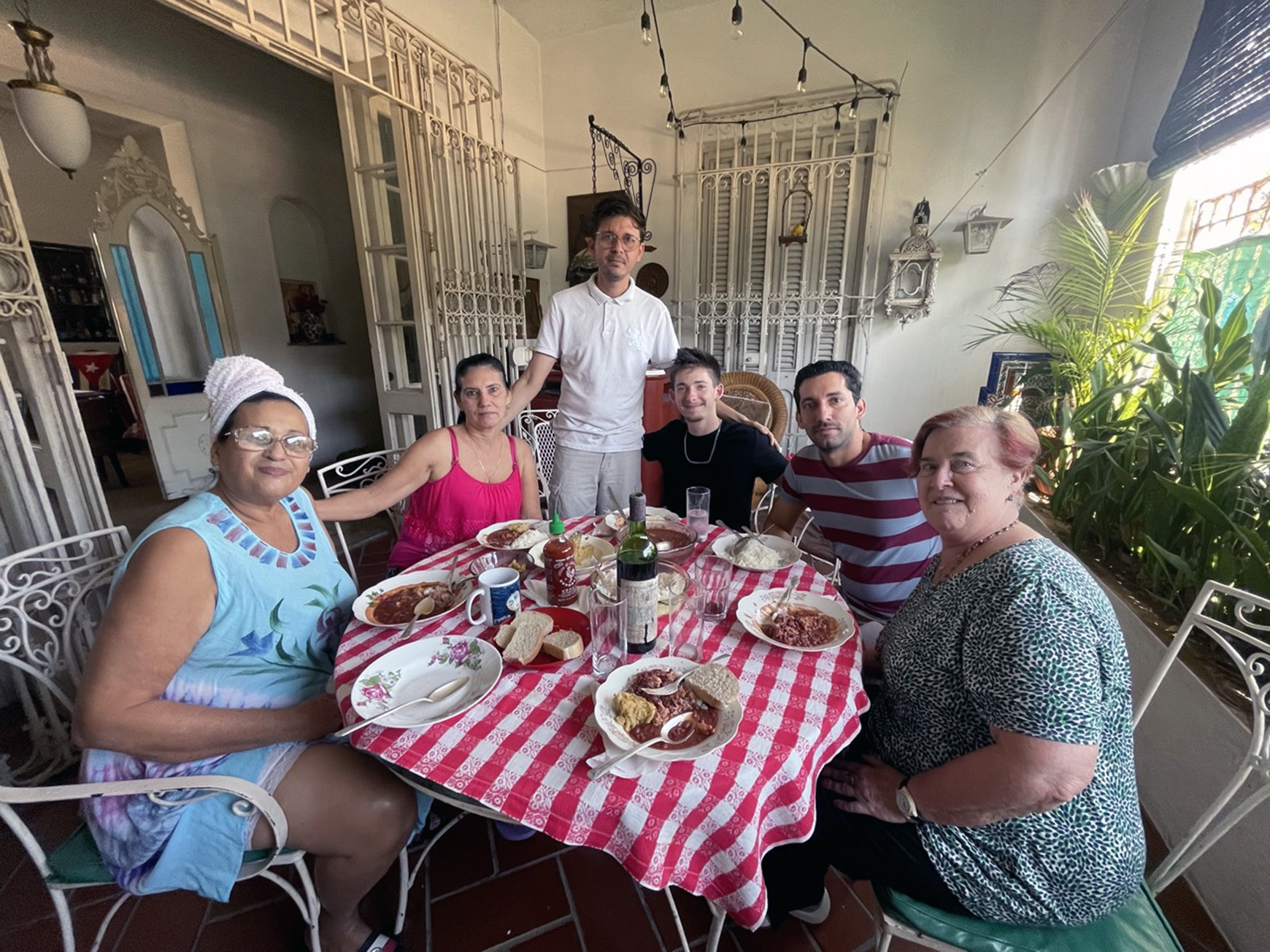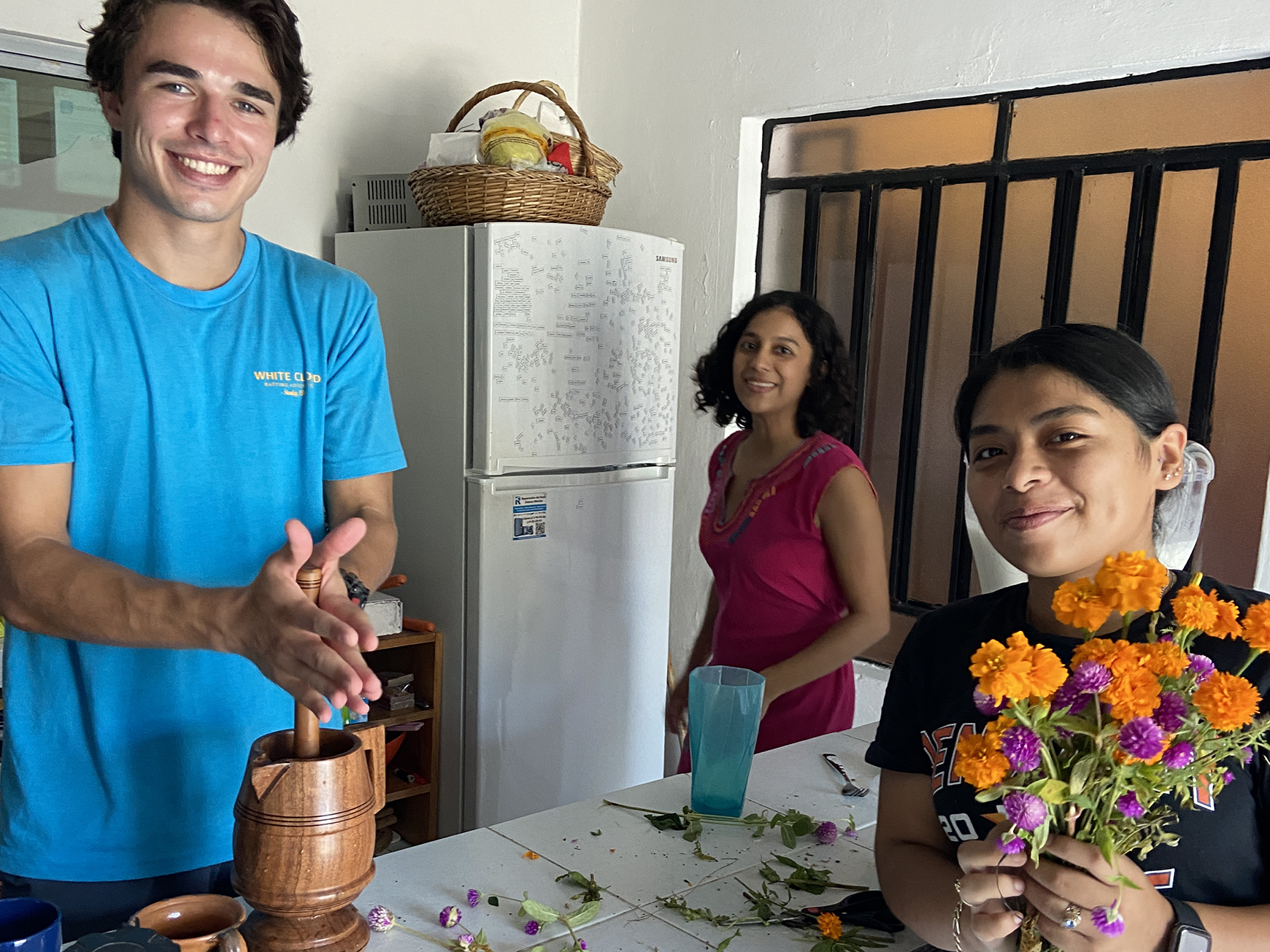Merida, Mexico
Public Health in the Yucatán—Summer
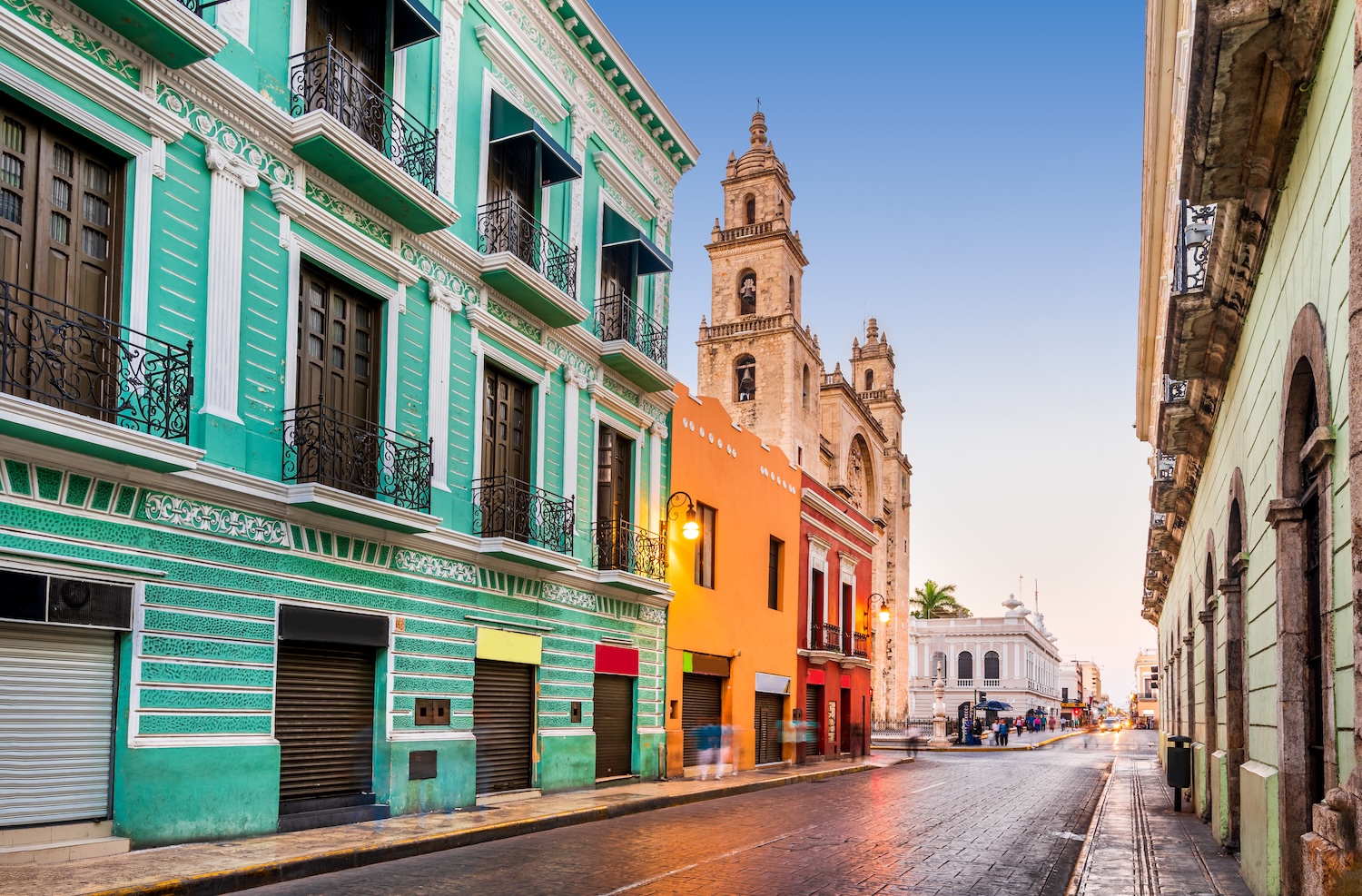

Program Overview
BROADEN YOUR LENS WITH UNIQUE, FIRST-HAND EXPERIENCES IN MEXICO AND CUBA
Take your interest in community health to the beautiful Yucatán Peninsula. Explore the issues that shape health policy and health care in Mexico through unique academics and immersive visits to health care delivery centers. Plus, gain additional perspective into state-run, universal health care for a diverse population with a rare, five-day excursion to Cuba.
Throughout your stay, homestays, meetups with local university students, and a banquet of curated activities and day trips that highlight local culture—from ancient Maya treasures to Yucatán’s natural wonders—spark cultural understanding.
We offer this program in partnership with Brandeis University. Please apply through Brandeis University, not the IFSA Student Portal.
Details at a Glance
Application deadline
Minimum GPA
3.00
Credit load
8
Housing
Single Room Option, Homestay
Instruction language
English
Language prerequisites
None
Visa required?
Not in most cases. Learn More.
Academics
Classes are taught exclusively to students in this program by local instructors. Academic learning includes three to five visits to local hospitals, rehabilitation centers, private practices, and the like for interactive experiences with health care practitioners that provide insights into public health issues and health policy in the Yucatán.
Contemporary Issues in Public Health in the Yucatán
An increase in diversity presents Yucatán healthcare providers with many new challenges to respond effectively to patient wellbeing. Gain an overview of healthcare in the Yucatán and examine the public and private healthcare systems in Mexico, including the use of mainstream and traditional approaches in urban and rural settings. Through numerous field visits, consider local prevailing health issues such as cervical cancer, obesity, diabetes, and heart disease, and deepen intercultural agility as you explore how patient expectations and understandings of personal health differ in this cultural context. (3 U.S. semester credit hours)
Comparative Public Health Systems in Latin America
Build an introductory knowledge of how public health is addressed in Latin America, including how the system is organized and main indicators that drive public policy. Explore social and economic determinants of health, principal issues in Latin American context, and how different systems across countries address them. Learn about differences between Latin American and U.S. systems, social medicine and its contributions, the roles of the state, private sector, NGOs, and international organizations, and how studying Latin American systems can boost global comprehension of public health. (3 U.S. semester credit hours)
Essential Spanish.
Six hours of lessons provide opportunities to learn key words and phrases in an informal setting.
Connecting with local university students.
Meet peers that will help introduce you to Mérida and invite you to participate in cultural activities.
APPLICATION REQUIREMENTS
Eligibility
- Must be at least 18 years of age. Those under 18 may be accepted on a case-by-case basis.
- Must be currently attending or recently graduated from a U.S. or Canadian community college, technical college, two-year college, four-year college, or four-year university.
- Must have completed at least one (1) full-time year of study at your home institution before the beginning of the term.
- GPA: 3.0
TRANSCRIPT
Upon completion of your program, Brandeis will send an official Brandeis University transcript to your home university with your coursework converted to the U.S. semester credit hour system. You will also have access to an unofficial transcript in your Brandeis Study Abroad Portal. The transcript reflects classes taken, credits attempted, and grades earned during your term abroad. This service is included in your study abroad program at no additional cost.
Excursions
Activities and excursions are designed to pull you into the communities you visit and encourage cultural connections of every kind. There’s no extra fee to participate in these optional outings—everything is included in your program fee.
Below are a selection of activities and excursions; options may vary for your program.
Activities
- City-as-Text activity: Get to know Mérida’s beautiful downtown and the surrounding neighborhoods. Learn both the legendary history of the city and the region as well as the impact of contemporary social processes like gentrification and touristification.
- Guided walking tour of historic downtown. A fun way to get the historical context you’ll need for your classwork. Highlights include the Governor’s Palace, House of Montejo, and the Mérida Cathedral, one of the oldest in Mexico.
- Bus tour of Mérida. Learn about the city’s main features, history, and important landmarks from an experienced local guide.
- Museum of the Mayan World. During this visit, you’ll learn about the history, culture, and identity of the Maya, from pre-Hispanic times through modern day—ideal preparation for our day trips!
- Biciruta. Explore the iconic Paseo de Montejo—the city’s main avenue—with beautiful green spaces and impressive architecture.
- Salsa lesson. Learn how to connect movement with distinctive Caribbean rhythms that reflect years of fusion and cultural history.
- Chichén Itzá day trip. Explore the remnants of an ancient Maya city, where as many as 35,000 once lived, with a professional archaeologist. Visit a nearby cenote (swimming hole) and learn to cook a delicious Yucatecan meal.
- Uxmal day trip. Travel back in time with a local archaeologist to this famed World Heritage site to explore the impressive pyramids, palace, and roadways of this ancient Maya city.
Excursions
Public health in Cuba. This four-night/five-day excursion provides a rare opportunity to see first-hand how Cuba’s community-based health system operates, and how it differs from private and centralized models. Discover how Cuba integrates biotechnology, traditional medicine, and public health, and explore the challenges and innovations related to providing equitable health services to a range of populations.
Highlights:
- Three guest speakers that will address our academic themes
- Three academic visits to clinical settings such as the Center for Engineering and Biotechnology, a polyclinic, and a local pharmacy
- Old Havana guided walking tour, highlighting history, architecture, and political legacy
- Museum visit. Dive deeper into Cuban history and culture with a visit to a museum such as Museo de la Revolución (revolutionary movements and state-building that shaped national health and social policies), or Museo de Bellas Artes (see how art reflect culture and identify as they intersect with public narratives on health, community, and social change).
- Plaza de la Revolución, one of the city’s most iconic landmarks
- Fábrica de Arte, an innovative arts venue
Details:
- IFSA handles securing visas required by Cuba.
- Students live in homestays near the University of Habana in houses or apartments in the Vedado neighborhood.
- IFSA provides a Cuba SIM card for each student.
Housing and Meals
Housing
Single Room Option, HomestayDetails
Students live with local families in what’s known as a homestay. Homestays make it easy to immerse yourself in the region’s rich culture. They also provide many opportunities to build your Spanish language skills.
Homestays:
In Mérida, we place students with carefully screened families, many of whom have been hosting IFSA students for nearly 20 years. Many have grown children who have left home and enjoy having young people around. Families host up to two IFSA students at a time.
You might live with a retired couple and their beloved terrier, with frequent visits from their young grandchildren. Your hosts might have high school-age children and a grandparent living with them. Or you might join a single mom who shares her home with her adult daughter and grandson, with another adult child living nearby.
- Location. Host families live throughout the city. You might live close to downtown within easy walking distance to the IFSA Program Center—or 45–60 minutes away via public transportation (that’s just 15 minutes away via Uber).
- Living space. Each student has their own bedroom. Bathrooms are sometimes private but could be shared with other family members. Your hosts provide a desk or other suitable place to study.
- Meals. Three meals a day included. Your homestay family understands that you also need time out to be with friends and explore—they’ll appreciate a heads-up when you plan to eat out. Students buy their own snacks.
- Language. Few families are fluent in English, but most can communicate. We do our best to place students without Spanish skills with English-speaking families.
- Other details. Internet included. Air conditioning is limited to eight hours at night, so expect to adjust to heat and humidity in this tropical environment. Most homes have a washing machine that students can use once a week. In some cases, the family offers to do the laundry. If the family does not have a washing machine, they will take the student once a week to the laundromat.
- Nearby. Cafes, restaurants, malls, and public transportation.
Dates and Fees
Get Started
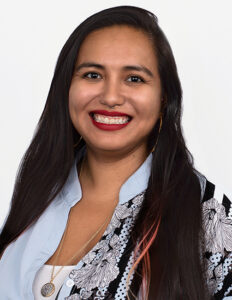
Selena Rincon
Senior Enrollment Counselor


